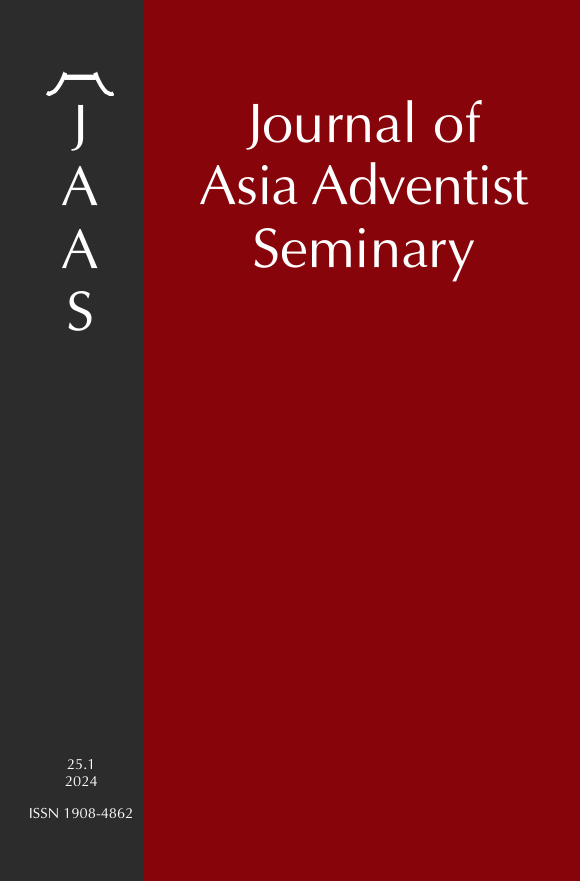Editorial
Abstract
JAAS is pleased to present to you the 2024 issue of our journal. The roots of this edition date back to the 2023 AIIAS Annual Theological Forum titled, “Theodicy: God’s justice in an Unjust World.” At this forum, Eugene Zaitsev delivered a keynote address that became the basis for the first article in this journal, “The Problem of Theodicy in Russian Religious Philosophy of Late XIX and Early XX Centuries.” In this article Zaitsev reflects on the attention Russian religious philosophers gave to the problem of theodicy during the extreme socio-political upheaval of the late 19th and early 20th centuries. Zaitsev argues that these thoughtful approaches to the problem of evil in the world often falter because they “introduce into their reasoning elements alien to biblical Christianity.” Zaitsev seeks to show that these Russian philosophers each have valuable insights on the problem of suffering, though they exhibit varying closeness to biblical understandings of theodicy.
The issue continues the theme of theodicy with Karl Wilcox’s article, “Justice and Deception in 1 Kings 13.” In this literary analysis, Wilcox argues that humans should strive to understand the reasons behind God’s commands to gain wisdom. Dumb compliance is not adequate to protect humans from the cunning deceptions of the world. An attitude of “God wills it so” should not replace a growing understanding of God and the wisdom of His ways.
Next, in “Psalms of Trust: A Poetic Analysis,” David Sailo argues that the Psalms of trust encourage and demonstrate trust in God in the face of adversity and hardship. He argues that, in times of need, the righteous may call on God who is characterized by love and able to restore peace that transcends circumstances.
Zandritiana Lovanomena also addresses the issue of theodicy in his “The Use of Psalm 44 in Romans 8: Pauline Response to God’s Hiddenness.” Lovanomena argues that Paul reinterpreted the lament in Psalm 44 as being typologically fulfilled in Christ. In Lovanomena’s reading, the cross acts to reestablish the “God-human relationship” and provides believers with confidence in God’s goodness in their own lives now and forever.
In the last article in this issue, we take a turn away from theodicy to consider the priesthood of Christ. Adriani Milli Rodrigues argues in “The Priesthood of Christ from an Eschatological Perspective: A Systematic Theological Reflection on Hebrews” that the Christology of Hebrews is more broadly rooted in eschatological priesthood than is often recognized by scholars. Rodrigues’ aim is to fill this gap by arguing that the eschatological priesthood of Christ is central to the conception of Hebrews as an eschatological document. For Rodrigues, Hebrews is to be read as an exhortation on the final judgment, which is emblematic of Christ’s kingship, and as arguing that salvation is to be found in His priesthood.
After many years of being behind, with the publication of this issue JAAS is finally up to date. I want to express my personal thanks for the exceptional work of our Editor, Kenneth Bergland, and Assistant Editor, Dindo Paglinawan. They have borne the brunt of the work to bring JAAS up to date.

